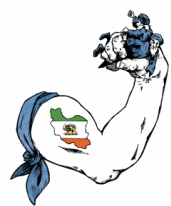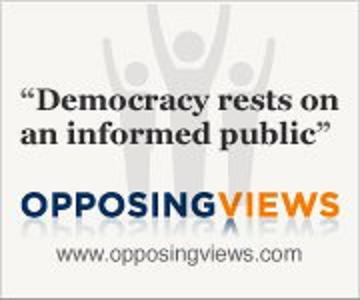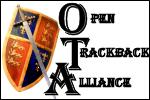What Makes Tehran Tick?
I ran accoss this last night while I was doing some googling. So why am I posting about it? Well, for one thing it has some very good information on Iran in the White Paper. But the real reason is probably because on page 23 of 92 of the pdf they have a link to my website. ;-)
The Iran Policy Committee rolled out its fourth White Paper,
"What Makes Tehran Tick."
The paper analyzes the radical Islamist nature of the Iranian regime, why its character matters, and options to prevent a nuclear-armed Iran.
President of the IPC Professor Raymond Tanter, a former senior staff member of the National Security Council, stated that, "The Islamist nature of the regime takes on enhanced importance because Iran is on the road to acquiring nuclear weapons, and there are few exit ramps along the way." Tanter stated that, "Given the Islamist character of the Iranian regime and its nuclear potential, only regime change ends the threat of a nuclear-armed Islamist Iran. Diplomacy and military strikes would only delay the onset of the Iranian regime acquisition of nuclear arms." Tanter also brought to light the results of an IPC statistical study of over 2,400 public statements by Tehran over the last 27 years.
Using the quantitative content analysis techniques, the IPC research concludes that Iran's hostility toward Israel and the United States is less a result of feeling threatened or living in a "tough neighborhood" than by the nature of the regime's revolutionary ideology.
The study also demonstrates that the average intensity of the threat perceived to religious and revolutionary interests is higher than regime's perceived threat to traditional national interests.
With such limitations, a diplomatic resolution to the conflict between the international community and Iran is unlikely.
Rather than sliding toward military strikes, the IPC suggests that the international community empower the Iranian people, led by organized pro-democracy resistance groups like the Mujahedeen- e Khalq (MEK) and its umbrella group, the National Council of Resistance of Iran, to bring about change in their own country. Empowering the opposition requires the removal of the MEK and NCRI from the Foreign Terrorist Organizations list maintained by the Department of State.
IPC Executive Director Clare Lopez, a former CIA operations officer, led off the discussion of the nature of the regime in Tehran. Lopez noted that, "The leadership in Iran perceives itself as involved in two fundamental battles: a struggle for leadership in the Muslim world and a clash with modernization, democratization, secularization, and globalization, as embodied in Israel and the United States. The increasing belligerency of the regime's attitude is likely an attempt to pursue its perceived clash of civilizations, and to rally the Moslem population in the region around the regime's power structure by creating fear of external threats."
Professor Louis Rene Beres of Purdue University addressed legal and political justifications for potential preemptive actions by the State of Israel. Beres stated that, "In light of Iran's openly declared desire 'to wipe Israel off the map,' and the existential threat that nuclear weapons would pose, Israel would have clear justification under international law to undertake preemptive action against Iran."
Captain Charles Nash, (U.S. Navy retired), analyzed military options available to the United States and Israel. Nash pointed out that, "Although the United States has the capability to damage and delay Iran's nuclear program, there would be significant risks of escalation from Tehran, and military strikes would not be able to prevent the acquisition of nuclear weapons by Iran in the long term."
Lt. General Tom McInerney, (U.S. Air Force retired), emphasized, that "no option would be a viable option if it does not consider at its core, a central role for the Iranian opposition to lead regime change in Tehran."
The Iran Policy Committee is comprised of former officials from the White House, State Department, Pentagon, intelligence agencies, the Congress, as well as experts from think tanks and universities. The mission of the IPC is to educate the international community about the need to find an option for Iran between failing diplomacy and difficult military action against Iran-regime change in Tehran.
Yes I know it's not that big of a deal, but I want to bask in the illusion for a bit.
Technorati Tag:Iran
Posted by ky/kentuckydan
at 12:31 AM CDT
| Post Comment | Permalink | Share This Post
Updated: Thursday, 8 June 2006 1:03 AM CDT
| Post Comment | Permalink | Share This Post
Updated: Thursday, 8 June 2006 1:03 AM CDT

















